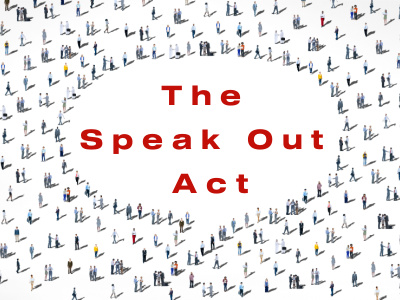In the wake of the #MeToo movement, Congress has enacted legislation to assist people who pursue individual and class-action lawsuits in their ability to litigate disputes of sexual assault and sexual harassment. After President Biden signed the Ending Forced Arbitration of Sexual Assault and Sexual Harassment Act of 2021 into law, Congress passed the Speak Out Act. This was signed into law by President Biden on December 7, 2022. Employers should review their employment agreements and policies to ensure they’re in compliance with the new law.
Background
Throughout 2022, Congress took aim at limiting employers’ abilities to restrict claims of workplace sexual assault or sexual harassment. On March 3, 2022, President Biden signed the Ending Forced Arbitration of Sexual Assault and Sexual Harassment Act of 2021 into law.
This law amended the Federal Arbitration Act (FAA) to prohibit predispute agreements and class-action waivers which would require employees to arbitrate disputes involving sexual assault or sexual harassment. Arbitration of these types of disputes is still legal with an employee’s consent, but employers can’t compel or mandate by agreement that sexual harassment or sexual assault disputes be arbitrated.
Recently, Congress passed legislation that further limits the restriction of sexual harassment and sexual assault claims. On November 16, 2022, Congress passed the Speak Out Act, which was signed into law by President Biden shortly afterwards.
The Speak Out Act
The Speak Out Act is a piece of bipartisan legislation which prohibits predispute nondisclosure and non-disparagement agreements which attempt to prevent employees from discussing sexual harassment or sexual assault.
In practice, this means that before the unlawful conduct occurs, employers won’t be able to require employees to sign nondisclosure or non-disparagement agreements that prohibit them from reporting sexual harassment or assault that they experience in the workplace. Of course, these types of agreements were likely already illegal under common law public policy principles, so many view the Act as a codification of those preexisting principles.
Additionally, nondisclosure and non-disparagement agreements as a whole aren’t prohibited, but any provision in them that prospectively attempts to prevent an employee from speaking up about sexual harassment or assault is null and void under the Act.
Employers are still free to use predispute confidentiality agreements to protect things like trade secrets or proprietary information. With the new law now in effect, the best practice for employers is to tailor their confidentiality agreements specifically to those legitimate business interests.
Some states have already passed similar measures. For example, since 2018, Maryland has had a law prohibiting employment contracts or policies which require employees to waive any rights relating to sexual harassment claims, including before a dispute arises.
Likewise, Vermont enacted a law in 2018 which renders any provisions in employment contracts which would waive employee rights to disclose or report sexual harassment, among other things, null and void. California and Illinois enacted similar prohibitions in the wake of the #MeToo movement in 2018 and 2019, respectively.
Now that President Biden has signed the Speak Out Act into law, predispute nondisclosure and non-disparagement agreements regarding sexual harassment or sexual assault are prohibited nationwide.
Notably, previous versions of the Speak Out Act included language which would have prohibited these clauses regarding claims of race, age, and national origin discrimination, among other similar equal employment opportunity claims.
On November 14, 2022, in expressing its support for the bill, the Biden Administration urged Congress to advance broader legislation that would address nondisclosure and non-disparagement agreements as they relate to race, unfair labor practices, and other violations.
For now, however, the National Labor Relations Act (NLRA) already protects employees’ rights to discuss unfair labor practices or other discrimination in the workplace, and state and federal equal employment opportunity laws prohibit employers from retaliating against employees who assert their rights under those laws.
Bottom Line
Employers should note that the Speak Out Act prevents predispute (rather than post-dispute) nondisclosure and non-disparagement agreements regarding sexual harassment or sexual assault.
As a result, confidential settlement agreements or severance agreements which might contain language regarding pastsexual harassment or sexual assault disputes are still permitted under the Act, but they’re subject to the existing limitations on employers’ abilities to prevent employees from reporting unlawful conduct to state and federal equal employment opportunity agencies.
Regardless, employers should review their employment contracts and policies with their counsel to ensure compliance with the new law, especially where those contracts and policies contain broad nondisclosure, non-disparagement, or other confidentiality provisions.
Dylan Hughes is an attorney with Steptoe & Johnson PLLC in Dallas, Texas. He can be reached at dylan.hughes@steptoe-johnson.com.

